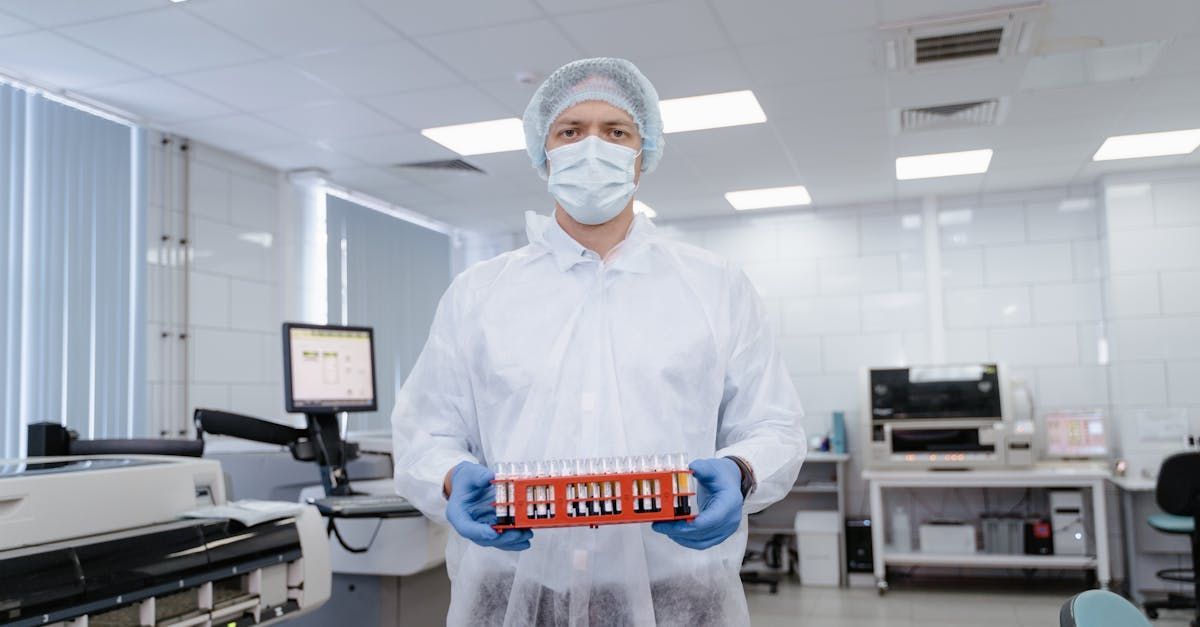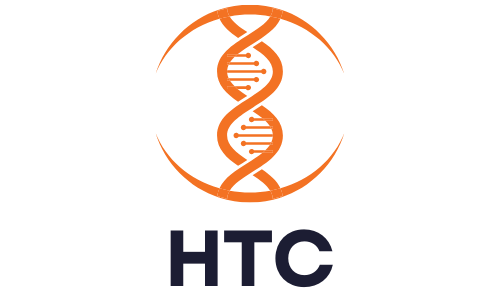The Future of Personalized Cancer Care with Predictive Precision Medicine
The landscape of healthcare is continually evolving, with precision medicine emerging as a transformative force in the treatment of various diseases. Precision medicine tailors treatment plans to the unique genetic, environmental, and lifestyle factors of individual patients, promising more effective and personalized healthcare solutions. Within this innovative field, predictive precision medicine stands out as a particularly promising approach. By harnessing advanced technologies and data analytics, predictive precision medicine aims to forecast how patients will respond to specific treatments, thereby optimizing therapy selection and improving outcomes.
At the forefront of this revolution is Notable Labs, a clinical-stage platform therapeutics company dedicated to developing predictive precision medicines. Notable Labs leverages cutting-edge genomics, machine learning, and drug development capabilities to create personalized therapies for cancer patients. Their pioneering work exemplifies the potential of predictive precision medicine to transform cancer care, offering new hope for patients and setting a new standard for personalized treatment strategies.
The Promise of Predictive Precision Medicine
Predictive precision medicine holds immense promise for transforming cancer care by addressing the inherent heterogeneity of tumors and individual patient responses. Unlike traditional "one-size-fits-all" approaches, which often fail to account for the complex interplay of genetic, environmental, and lifestyle factors that influence disease progression and treatment efficacy, predictive precision medicine offers a more personalized approach.
Addressing Tumor Heterogeneity and Individual Responses
Cancer is not a uniform disease; each patient's tumor can have a unique genetic and molecular profile. This diversity means that treatments that work for one patient may be ineffective for another. Predictive precision medicine tackles this challenge by analyzing the specific genetic mutations and molecular pathways driving an individual’s cancer. By understanding these unique characteristics, clinicians can tailor treatments to target the specific abnormalities present in a patient's tumor, thereby enhancing the likelihood of a successful outcome.
Limitations of Traditional Approaches
Traditional cancer treatments often rely on standardized protocols that apply the same therapy to all patients with a particular type of cancer. While this approach has led to significant advances in cancer treatment, it has notable limitations. These treatments can be effective for some patients but may result in suboptimal outcomes for others. Additionally, traditional therapies can cause significant side effects, as they may not differentiate between healthy cells and cancer cells. This lack of specificity often leads to a higher burden of adverse effects and increased healthcare costs due to ineffective treatments.
Leveraging Advanced Genomic Profiling
Predictive precision medicine leverages advanced genomic profiling to overcome these limitations. Through techniques such as next-generation sequencing, researchers can analyze the genetic makeup of a patient's tumor to identify unique molecular signatures. These signatures include specific mutations, gene expression patterns, and other biomarkers that can provide insights into how the cancer is likely to behave and respond to various treatments.
By identifying these molecular signatures, clinicians can select therapies that are most likely to be effective for each patient. For example, if a tumor has a specific mutation that drives its growth, a targeted therapy designed to inhibit that mutation can be chosen, increasing the chances of a positive response.
Benefits of Predictive Precision Medicine
The benefits of predictive precision medicine are multifaceted. Firstly, it allows for the selection of effective therapies tailored to the individual characteristics of a patient’s cancer. This targeted approach not only improves treatment efficacy but also reduces the likelihood of adverse effects, as therapies are chosen based on their ability to specifically target cancer cells while sparing healthy tissue.
Secondly, predictive precision medicine can significantly reduce healthcare costs. By avoiding ineffective treatments and minimizing side effects, patients require fewer additional interventions and hospitalizations. This efficiency translates to lower overall costs for both patients and healthcare systems.
Furthermore, predictive precision medicine enhances the overall patient experience. By providing more effective and personalized treatment options, patients can achieve better outcomes and maintain a higher quality of life during and after treatment.
Notable Labs' Pioneering Approach
Notable Labs is at the forefront of the predictive precision medicine revolution, utilizing a comprehensive and cutting-edge approach to create personalized treatment plans for cancer patients. Their methodology integrates genomic profiling, advanced machine learning, and innovative drug development to tailor therapies that maximize positive outcomes while minimizing adverse effects.
Genomic Profiling
At the heart of Notable Labs' approach is the utilization of next-generation sequencing (NGS) technologies. These advanced techniques allow for a detailed analysis of the genetic makeup of a patient’s tumor. NGS can identify unique molecular signatures, including specific genetic mutations and variations that drive the growth and behavior of cancer cells. By comprehensively mapping the genetic landscape of a tumor, Notable Labs can pinpoint the precise molecular abnormalities that need to be targeted.
Machine Learning
To make sense of the vast amounts of data generated by genomic profiling, Notable Labs employs advanced machine learning algorithms. These algorithms are designed to analyze complex genomic data, identify patterns, and develop predictive models that forecast how a patient’s cancer will respond to various treatments. By leveraging the power of machine learning, Notable Labs can uncover hidden correlations and insights that might be missed through traditional analysis methods. This data-driven approach ensures that treatment decisions are based on robust and comprehensive genetic information.
Drug Development
Notable Labs also leverages a proprietary drug discovery platform to develop novel therapies that specifically target the molecular signatures identified through genomic profiling. This platform integrates state-of-the-art computational tools and high-throughput screening technologies to identify and optimize compounds that can effectively inhibit cancer growth. By focusing on the unique genetic and molecular characteristics of each patient's tumor, Notable Labs can develop drugs that are precisely tailored to their needs, increasing the likelihood of treatment success.
Integration for Personalized Treatment Plans
The true strength of Notable Labs' approach lies in the integration of genomic profiling, machine learning, and drug development. By combining these components, Notable Labs can create highly personalized treatment plans that are tailored to the specific genetic and molecular profile of each patient’s cancer. This integrated strategy ensures that therapies are not only effective but also minimize adverse effects by specifically targeting cancer cells while sparing healthy tissue.
By utilizing next-generation sequencing technologies to analyze genetic makeup, applying advanced machine learning algorithms to identify predictive patterns, and developing novel therapies through their proprietary drug discovery platform, Notable Labs is pioneering a new era of personalized cancer care. Their comprehensive approach aims to maximize positive outcomes for patients while minimizing the side effects and costs associated with ineffective treatments. This holistic and data-driven methodology positions Notable Labs as a leader in the field of predictive precision medicine, offering new hope for patients battling cancer.
Competitive Landscape and Investment Opportunities
Key Players in Predictive Precision Medicine
Notable Labs is a prominent player in the predictive precision medicine field, but it is not alone. Several other key companies are also making significant strides in this rapidly evolving domain, each bringing unique strengths and innovations to the table.
- Tempus: Tempus utilizes artificial intelligence and machine learning to analyze clinical and molecular data at scale, aiming to provide personalized treatment options for cancer patients. Their platform integrates extensive datasets to identify patterns and correlations that can guide therapy decisions.
- GenomOncology: GenomOncology offers a comprehensive precision medicine platform that facilitates the analysis and interpretation of genomic data. Their solutions are designed to help clinicians make informed decisions by providing actionable insights from complex genomic information.
- Caris: Caris Life Sciences focuses on comprehensive molecular profiling to provide a detailed understanding of the genetic and molecular landscape of tumors. Their platform supports the development of targeted therapies and personalized treatment plans based on individual patient profiles.
- Pangea Biomed: Pangea Biomed is developing advanced bioinformatics tools and machine learning algorithms to enhance the precision of cancer diagnostics and treatment. Their technologies aim to improve the accuracy of predictive models and optimize therapeutic strategies.
- Strata Oncology: Strata Oncology specializes in molecular profiling and clinical trial matching for cancer patients. Their platform identifies suitable clinical trials based on the genetic and molecular characteristics of a patient's tumor, facilitating access to cutting-edge treatments.
- First Ascent Biomedical: First Ascent Biomedical employs a multi-omics approach, integrating genomics, proteomics, and other data types to develop personalized cancer therapies. Their platform focuses on identifying optimal treatment combinations and predicting patient responses.
Market Potential and Growth Projections
The potential of predictive precision medicine is immense, and the market is poised for substantial growth. According to CB Insights, the precision medicine market is expected to reach $216.9 billion by 2028. This growth is driven by advancements in genomics, artificial intelligence, and personalized therapies, which are transforming the landscape of cancer treatment and other medical fields.
Investment Opportunities
The burgeoning field of predictive precision medicine offers numerous investment opportunities, particularly in emerging biotech startups and digital health innovations. Companies developing cutting-edge technologies and platforms in this space are attracting significant attention from venture capitalists and strategic investors. The promise of personalized treatments that can improve patient outcomes while reducing healthcare costs is a compelling value proposition.
Investors are particularly interested in companies that leverage advanced genomics, machine learning, and AI to develop innovative solutions. These technologies have the potential to revolutionize healthcare by providing more accurate diagnoses, predicting treatment responses, and personalizing therapies to individual patients.
Attraction of Venture Capital and Strategic Investors
The advancements in predictive precision medicine are drawing significant interest from venture capitalists and strategic investors. The ability to deliver personalized, effective treatments aligns with the growing demand for precision healthcare solutions. Investors recognize the potential for substantial returns, driven by the increasing adoption of precision medicine approaches and the expanding market for targeted therapies.
Furthermore, collaborations between biotech startups, pharmaceutical companies, and healthcare providers are fostering innovation and accelerating the development of predictive precision medicine solutions. These partnerships are crucial for integrating new technologies into clinical practice and ensuring that patients can benefit from the latest advancements in personalized cancer care.
In conclusion, the competitive landscape of predictive precision medicine is vibrant, with several key players contributing to the advancement of personalized therapies. The market potential is vast, and investment opportunities abound in this rapidly growing field. As genomics, AI, and personalized therapies continue to evolve, predictive precision medicine is set to revolutionize cancer care, offering new hope for patients and significant returns for investors.
Challenges and Considerations
While predictive precision medicine holds great promise for revolutionizing cancer care, several significant challenges and considerations must be addressed to fully realize its potential.
Data Complexity
Predictive precision medicine relies heavily on the analysis and interpretation of vast amounts of genomic and clinical data. This data complexity necessitates robust computational resources and advanced analytical capabilities. High-throughput sequencing technologies generate large volumes of data, which require sophisticated bioinformatics tools to process and interpret. Moreover, integrating different types of data—such as genomic, proteomic, and clinical information—adds another layer of complexity. To overcome these challenges, significant investments in computational infrastructure, data storage, and advanced analytics are essential. Additionally, developing and refining algorithms that can accurately predict treatment responses and identify optimal therapeutic strategies is crucial for the success of predictive precision medicine.
Regulatory Landscape
Navigating the complex regulatory environment for personalized therapies is another significant challenge. The development and approval of personalized treatments involve rigorous regulatory scrutiny to ensure their safety and efficacy. Regulatory agencies, such as the FDA in the United States and the EMA in Europe, have established guidelines for the approval of new therapies, but these frameworks are continually evolving. Ensuring compliance with these regulations can be a daunting task for companies developing predictive precision medicines. Furthermore, the regulatory landscape varies across different regions, adding another layer of complexity for companies operating on a global scale. Engaging with regulatory bodies early in the development process and maintaining open lines of communication can help navigate these challenges more effectively.
Reimbursement and Adoption
Securing adequate reimbursement from payers is critical for the widespread adoption of predictive precision medicine. Personalized therapies often come with higher upfront costs due to the need for genomic testing and tailored treatments. Convincing payers to cover these costs requires robust evidence of the clinical and economic benefits of predictive precision medicine. Demonstrating that personalized treatments can improve patient outcomes, reduce adverse effects, and ultimately lower overall healthcare costs is essential for gaining payer support. Additionally, promoting widespread adoption among healthcare providers is crucial. This involves educating clinicians about the benefits of predictive precision medicine, providing training on the use of genomic data in clinical decision-making, and integrating precision medicine into standard care protocols.
Ethical Considerations
Ethical considerations play a central role in the implementation of predictive precision medicine. Protecting patient privacy and ensuring the security of genetic data are paramount. Genetic information is highly sensitive, and unauthorized access or misuse can have serious implications for individuals. Implementing robust data protection measures and maintaining transparency about data usage are critical for addressing privacy concerns. Additionally, obtaining informed consent from patients is essential. Patients must fully understand the implications of sharing their genetic data, including potential risks and benefits. Equitable access to personalized therapies is another important ethical consideration. Efforts must be made to ensure that advancements in predictive precision medicine are accessible to all patients, regardless of their socioeconomic status, geographic location, or racial background. Addressing these ethical issues is essential for building trust and ensuring the responsible implementation of predictive precision medicine.
While predictive precision medicine has the potential to transform cancer care, addressing these challenges and considerations is crucial for its successful implementation. By investing in robust computational resources, navigating the regulatory landscape, securing reimbursement and promoting adoption, and addressing ethical concerns, the field can advance in a manner that maximizes patient benefit and fosters public trust.
The Road Ahead
The journey toward realizing the full potential of predictive precision medicine in cancer care is paved with opportunities for collaboration, innovation, and commitment to scientific excellence. To drive progress and translate groundbreaking discoveries into clinical practice, concerted efforts from academia, industry, and regulatory bodies are essential.
Importance of Collaborations
Collaborations between academia, industry, and regulatory bodies are crucial for advancing predictive precision medicine. Academic institutions play a pivotal role in conducting fundamental research and generating new scientific knowledge. Their discoveries provide the foundation for developing innovative therapies. Industry partners, such as biotech and pharmaceutical companies, are instrumental in translating these discoveries into viable clinical applications. They possess the resources, expertise, and infrastructure necessary for drug development, clinical trials, and large-scale production.
Regulatory bodies ensure that new therapies meet rigorous standards for safety and efficacy. By fostering collaboration and maintaining open communication with academic and industry partners, regulatory agencies can facilitate the efficient approval of innovative treatments. Joint initiatives, such as public-private partnerships, can pool resources and expertise, accelerating the development and deployment of predictive precision medicine.
Role of Key Players
Companies like Notable Labs, along with their competitors and industry publications, play a significant role in shaping the future of personalized cancer care. Notable Labs' pioneering approach, which integrates genomic profiling, machine learning, and drug development, exemplifies the potential of predictive precision medicine. Their work highlights the importance of leveraging cutting-edge technologies and data-driven insights to develop personalized therapies tailored to individual patients' unique genetic and molecular profiles.
Competitors such as Tempus, GenomOncology, Caris, Pangea Biomed, Strata Oncology, and First Ascent Biomedical are also making significant strides in this field. These companies contribute to the competitive landscape by developing innovative solutions and pushing the boundaries of what is possible in precision oncology. Industry publications like Fierce Biotech and BioWorld play a critical role in disseminating information, sharing best practices, and highlighting advancements and challenges in the field.
Vision for the Future
The future of predictive precision medicine is bright, with the promise of revolutionizing cancer treatment and ushering in a new era of truly personalized healthcare. By leveraging cutting-edge technologies such as next-generation sequencing, artificial intelligence, and advanced analytics, researchers and clinicians can gain deeper insights into the genetic and molecular underpinnings of cancer. This knowledge allows for the development of targeted therapies that are more effective and have fewer side effects than traditional treatments.
Data-driven insights play a crucial role in predictive precision medicine. The ability to analyze vast amounts of genomic and clinical data enables the identification of patterns and correlations that can inform treatment decisions. Machine learning algorithms can predict how patients will respond to specific therapies, allowing for the optimization of treatment plans.
A deep understanding of cancer biology is essential for developing personalized therapies. By studying the complex interactions between genetic mutations, signaling pathways, and the tumor microenvironment, researchers can identify novel therapeutic targets and develop strategies to overcome resistance mechanisms.
Promise of Predictive Precision Medicine
Predictive precision medicine holds the promise of transforming cancer care by offering personalized treatment approaches that maximize positive outcomes and minimize adverse effects. This approach addresses the inherent heterogeneity of tumors and individual patient responses, providing a more tailored and effective treatment strategy. As the field continues to evolve, the integration of advanced technologies, data-driven insights, and a deep understanding of cancer biology will drive progress and innovation.
The potential benefits of predictive precision medicine extend beyond improving patient outcomes. By enabling more precise and effective treatments, this approach can reduce healthcare costs associated with ineffective therapies and adverse effects. Additionally, the ability to predict treatment responses can streamline the drug development process, accelerating the approval of new therapies and making them available to patients more quickly.
In conclusion, the future of personalized cancer care with predictive precision medicine is filled with promise. Through collaboration, innovation, and a commitment to scientific excellence, we can usher in a new era of truly personalized healthcare, where treatments are tailored to the unique genetic and molecular profiles of each patient. This vision holds the potential to revolutionize cancer treatment, improving outcomes, and quality of life for patients worldwide
Conclusion
Predictive precision medicine stands at the forefront of a revolution in cancer care, offering transformative potential to personalize and optimize treatments based on the unique genetic and molecular profiles of individual patients. This approach addresses the limitations of traditional "one-size-fits-all" therapies, providing a more targeted and effective strategy for managing cancer. By leveraging advanced genomic profiling, machine learning, and innovative drug development, predictive precision medicine aims to improve patient outcomes, reduce adverse effects, and minimize healthcare costs associated with ineffective treatments.
The journey towards fully realizing the benefits of predictive precision medicine requires continued innovation, substantial investment, and robust ethical oversight. The complexity of analyzing and interpreting vast amounts of genomic and clinical data necessitates advanced computational resources and analytical capabilities. Navigating the regulatory landscape, securing reimbursement, and promoting widespread adoption among healthcare providers are critical challenges that must be addressed. Additionally, ethical considerations related to data privacy, informed consent, and equitable access to personalized therapies are paramount to ensuring that the advancements in this field benefit all patients.
To harness the full potential of predictive precision medicine, it is imperative for stakeholders across academia, industry, and regulatory bodies to collaborate and drive progress. Researchers must continue to push the boundaries of scientific discovery, while companies like Notable Labs, Tempus, and others innovate and develop cutting-edge solutions. Regulatory agencies play a crucial role in ensuring that new therapies are safe and effective, while healthcare providers must be equipped and willing to integrate these personalized approaches into clinical practice.
Investors and strategic partners are also vital in providing the necessary funding and support to accelerate advancements in predictive precision medicine. By fostering a collaborative ecosystem and maintaining a commitment to ethical standards, we can unlock the promise of this transformative approach and significantly improve cancer care.
In conclusion, the future of personalized cancer care with predictive precision medicine is bright, filled with potential to revolutionize treatment and improve patient outcomes. It is a call to action for all stakeholders to support and engage in the development of predictive precision medicine, ensuring that the benefits of personalized treatments are realized for the betterment of patient outcomes and healthcare overall. Together, we can usher in a new era of cancer care, where treatments are tailored to the unique characteristics of each patient, leading to more effective and compassionate healthcare.










